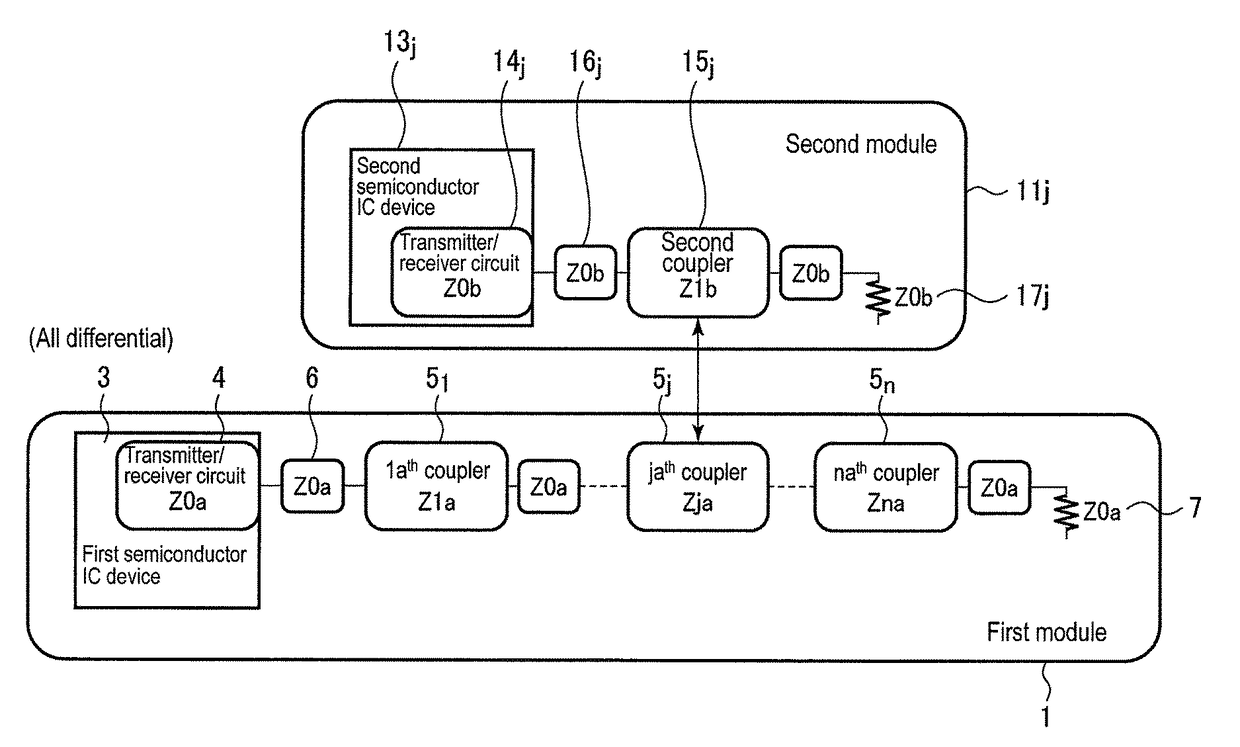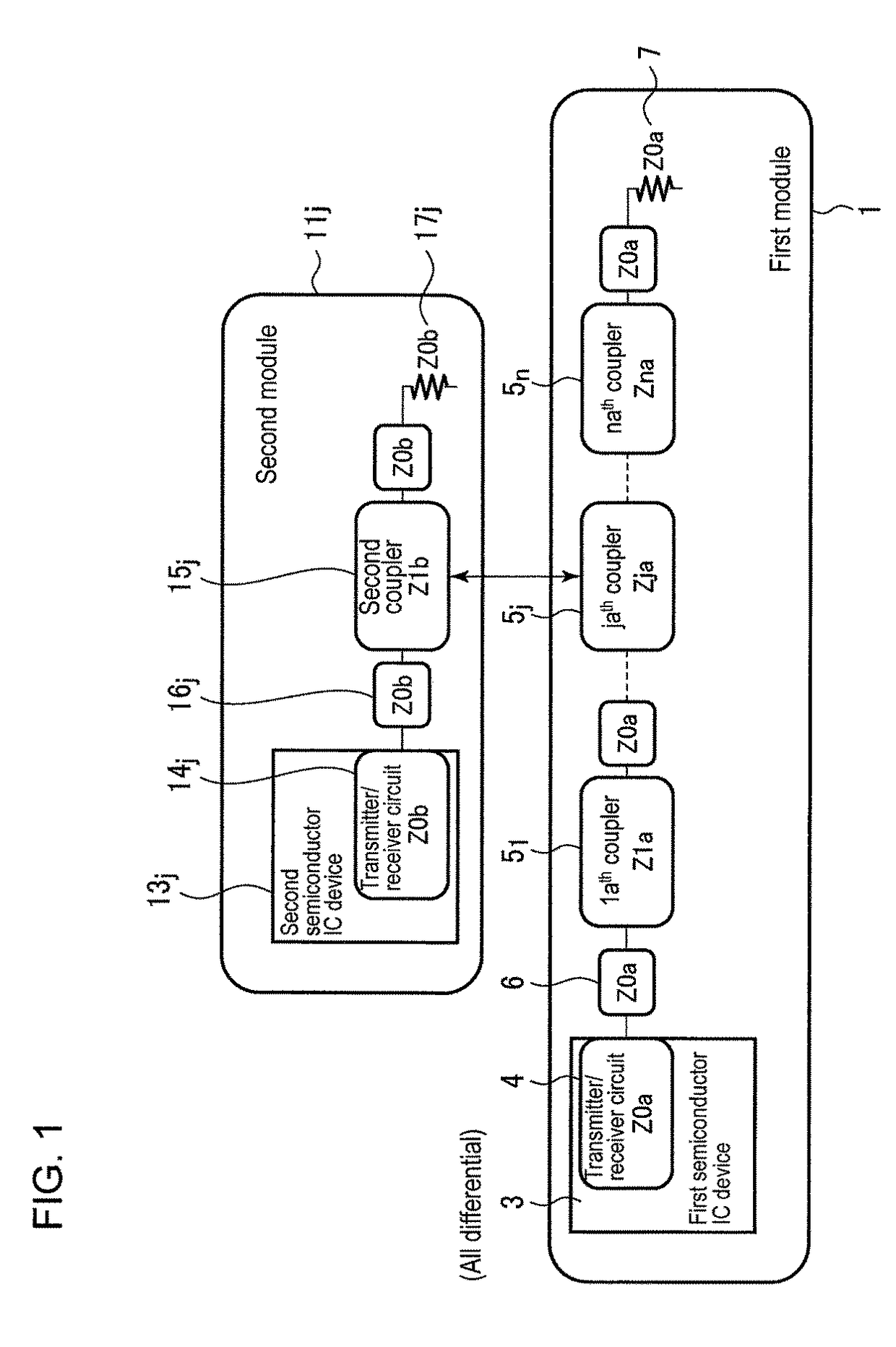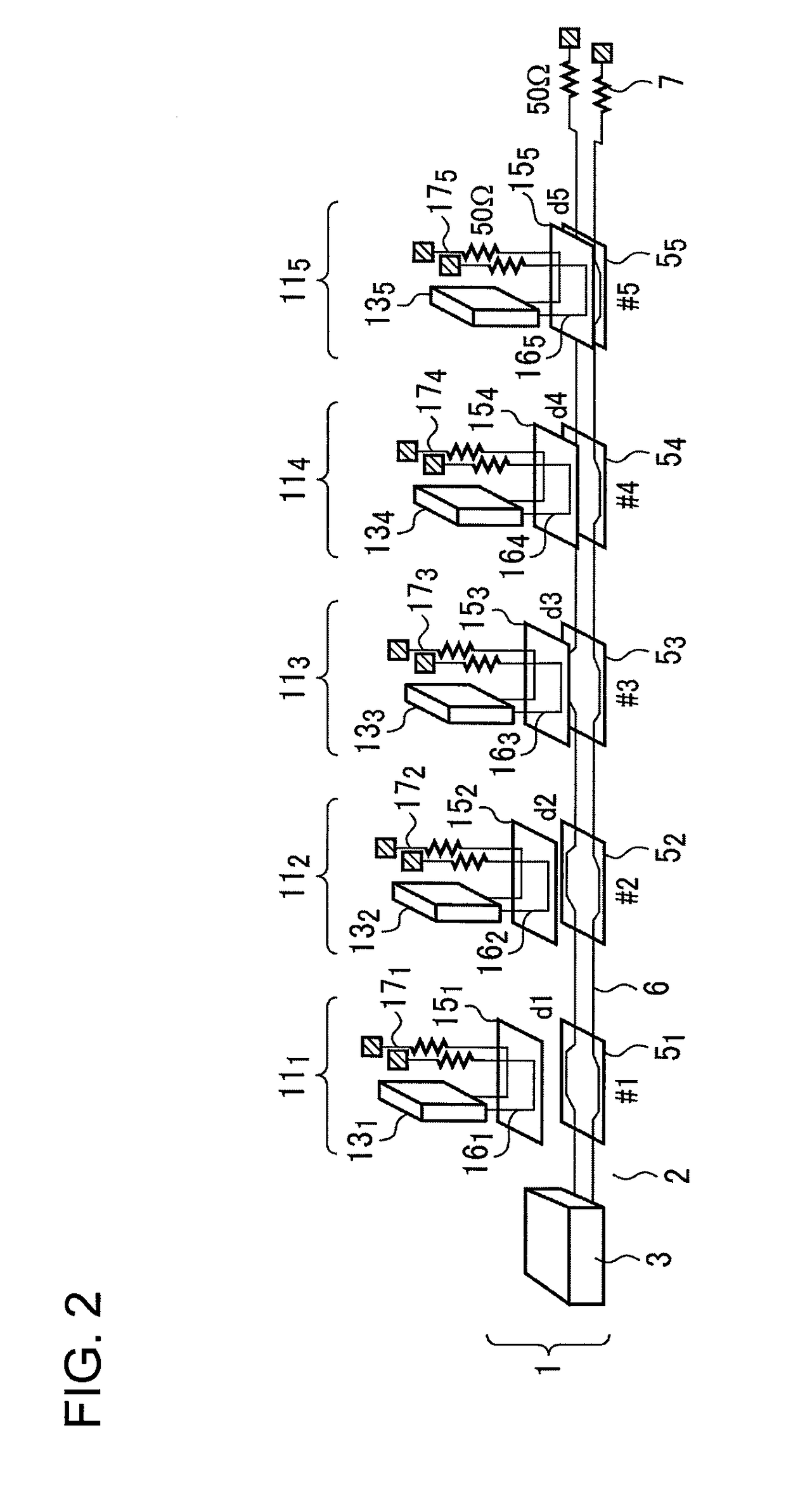Directional coupling-type multi-drop bus
a coupling type and multi-drop technology, applied in the direction of instruments, baseband system details, optical elements, etc., can solve the problems of signal distortion, signal signal transmission speed cannot be increased, etc., to achieve the effect of increasing signal transmission speed, increasing speed, and maintaining the performance of the coupler approximately constan
- Summary
- Abstract
- Description
- Claims
- Application Information
AI Technical Summary
Benefits of technology
Problems solved by technology
Method used
Image
Examples
example 1
[0089]Based on the above, next, the directional coupling-type multi-drop bus according to Example 1 of the present invention is described in reference to FIGS. 2 to 15B. Here, the degree of coupling is adjusted by the thickness of the insulating film, and at the same time, the distance between coupler lines Sc>the distance to the plane h and the constant coupler line width Wc>positional error δ are satisfied.
[0090]FIG. 2 is a schematic perspective diagram showing the directional coupling-type multi-drop bus according to Example 1 of the present invention. FIG. 3A is a schematic perspective diagram showing a child board, and FIG. 3B is a schematic perspective diagram showing a coupling portion. As shown in FIG. 2, bus lines (connection lines 6) are formed on a main board 2 of a number of pairs (only one pair is shown in the figure) of differential lines with a differential impedance Z (typically, 100Ω) that are wired parallel to each other from a first semiconductor integrated circui...
example 2
[0141]Next, the directional coupling-type multi-drop bus according to Example 2 of the present invention is described in reference to FIG. 17. The impedance is adjusted by varying the line width in a coupler portion in Example 2. FIG. 17 is a plan diagram showing the directional coupling-type multi-drop bus according to Example 2 of the present invention, where the greater the degree of coupling is, that is to say, the farther away the coupler is from the transmitter / receiver chip, the smaller the line width Wc of the coupler end on the main board side is, and the remaining portions are the same as in Example 1. Here, the child board in each coupler portion is the same as in Example 1. That is to say, any memory module may be mounted in any location on the main board.
[0142]In this case, the line width Wc of the coupler on the main board side is set as follows:
Wc1≧Wc2≧Wc3≧Wc4≧Wc5, where Mc1>Wc5.
When the line width Wc of a coupler is smaller, the impedance is greater as shown in FI...
example 3
[0149]Next, the directional coupling-type multi-drop bus according to Example 3 of the present invention is described in reference to FIG. 19. In Example 3, the portions where a module is not mounted are not provided with a memory or a transmitter / receiver circuit, and a child board for a terminal having only a coupler and a terminal resistor is mounted. FIG. 19 is a cross-sectional diagram showing the directional coupling-type multi-drop bus according to Example 3 of the present invention, and a board for a terminal, that is to say, a terminal module 40, is mounted on a location where a memory module is not mounted. The remaining structure is the same as in Example 1. Though memory modules are mounted on both sides in this figure, memory modules may be mounted starting from an end in the order in which the degree of coupling of the directional coupler is greater as shown in FIG. 20.
[0150]This terminal module 40 is provided with a child board 41 that is the same as for the memory mo...
PUM
 Login to View More
Login to View More Abstract
Description
Claims
Application Information
 Login to View More
Login to View More - R&D
- Intellectual Property
- Life Sciences
- Materials
- Tech Scout
- Unparalleled Data Quality
- Higher Quality Content
- 60% Fewer Hallucinations
Browse by: Latest US Patents, China's latest patents, Technical Efficacy Thesaurus, Application Domain, Technology Topic, Popular Technical Reports.
© 2025 PatSnap. All rights reserved.Legal|Privacy policy|Modern Slavery Act Transparency Statement|Sitemap|About US| Contact US: help@patsnap.com



